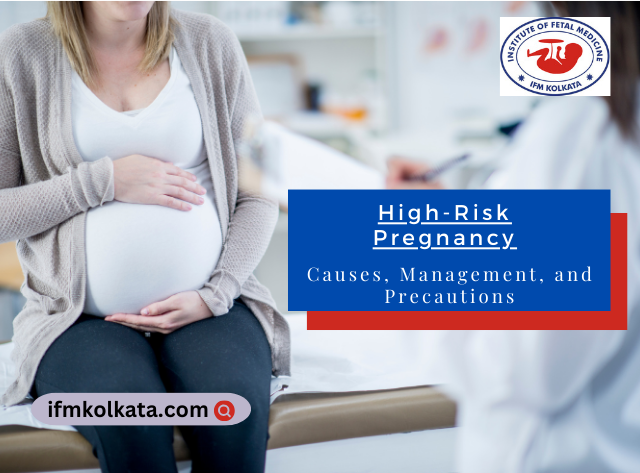A high-risk pregnancy is a term used to describe a pregnancy in which there is an increased likelihood of complications for the mother, the baby, or both. While pregnancy is generally a natural and healthy process, certain factors can elevate the risk associated with it. In this article, we will explore the causes, management, and precautions related to high-risk pregnancies, with a focus on the importance of early intervention and specialized care.
What is a High-Risk Pregnancy?
A high-risk pregnancy is not a diagnosis but rather a classification based on various factors that may increase the likelihood of complications. These factors can affect the health of the mother, the developing fetus, or both. Recognizing and addressing these risks early can significantly improve outcomes.
Common Causes of High-Risk Pregnancy
Several factors can contribute to a high-risk pregnancy, including:
a. Advanced Maternal Age: Women over 35 are at higher risk for complications like gestational diabetes and preeclampsia.
b. Medical Conditions: Preexisting conditions such as diabetes, hypertension, and heart disease can complicate pregnancy.
c. Multiple Pregnancies: Carrying twins or higher-order multiples increases the risk of premature birth and other complications.
d. Previous Pregnancy Complications: Women who experienced complications in previous pregnancies, such as preterm birth or stillbirth, may be at higher risk in subsequent pregnancies.
e. Lifestyle Factors: Smoking, excessive alcohol consumption, drug use, and obesity can all contribute to high-risk pregnancies.
Management of High-Risk Pregnancies
Managing a high-risk pregnancy involves close monitoring and specialized care. Here are some key aspects of management:
a. Prenatal Care: Regular prenatal visits are crucial to monitor the mother’s health and the baby’s development.
b. Lifestyle Changes: Adopting a healthy lifestyle, including a balanced diet and exercise, can help mitigate some risks.
c. Medication: Some conditions may require medication to manage, such as insulin for gestational diabetes or blood pressure medication.
d. Specialized Medical Care: High-risk pregnancies often necessitate care from maternal-fetal medicine specialists who have expertise in managing complex cases.
e. Fetal Monitoring: Advanced technology, like ultrasound and non-stress tests, helps monitor the baby’s well-being in utero.
Precautions for High-Risk Pregnancies
Expectant mothers with high-risk pregnancies can take several precautions to optimize their chances of a healthy pregnancy:
a. Follow Medical Advice: Adhering to the guidance of healthcare providers is essential, including taking prescribed medications and attending all recommended appointments.
b. Rest and Reduce Stress: Stress management and adequate rest are crucial for overall well-being during pregnancy.
c. Maintain a Healthy Diet: Eating a well-balanced diet can help manage conditions like gestational diabetes and ensure proper fetal development.
d. Avoid Harmful Substances: Stay away from smoking, alcohol, and illicit drugs, as they can harm both mother and baby.
e. Be Informed: Educate yourself about your specific condition and the potential risks, so you can actively participate in your care.
Conclusion
High-risk pregnancies require extra attention and care to ensure the best possible outcomes for both the mother and the baby. Understanding the causes, seeking specialized medical care, and taking precautions can make a significant difference in managing these pregnancies. Remember that early intervention and a supportive healthcare team can greatly contribute to a safer and healthier pregnancy journey.

